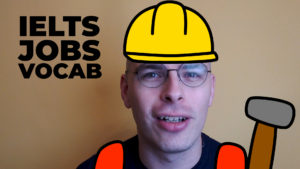Hometowns Speaking Practice Questions
Part One
- Where is your hometown?
- How often do you visit your hometown?
- If someone was visiting your hometown, where would you take them?
- Are there any famous foods from your hometown?
- What is the worst thing about your hometown?
- What is the best thing about your hometown?
- What changes would you make to your hometown?
Part Two
Describe your hometown. You should say:
- Where it is located,
- What it is known for,
- What the climate is like,
- And give your opinion of your hometown.
Part Three
- Is it better to grow up in a big city or the countryside?
- How can where someone grew up change their personality?
- How do parents decide on a hometown for their children?
- Why do some people feel very attached to their hometown?
- How has your hometown changed over the last 30 years?
Hometowns band nine sample answers
HOMETOWNS IELTS Vocabulary
These words and phrases are taken from the sample answer video. I’ve written them below in the same order they appear in the video.
- South-West
- You probably know ‘North’, ‘East’, ‘South’ and ‘West’. However, you should also know that when you combine them, they are ‘North-East’, ‘South-East’, ‘South-West’ and ‘North-West’. In some languages, it’s the other way round (for example, in Chinese it’s ‘East-North’) so be careful.
- Make it home
- Even though these are all common words, this collocation will impress your examiner. We’re more likely to use ‘make it home’ when talking about a hometown and ‘get home’ when we’re talking about where we live.
- Historical area
- An area which has lots of old buildings and features.
- Cobbled streets
- An old way of building a street which uses bricks instead of tarmac.
- Dish
- This is normally used to mean a plate, but we can also say ‘dish’ when talking about a type of food. This is especially common when talking about ‘regional dishes’.
- Unique
- Something that is different to everything else.
- Peninsula
- A piece of land that sticks out into the ocean.
- Get out of town
- To leave a town or city for a little while. You can also say this to someone to tell them to go away or if someone says something shocking to you.
- Village/town/city
- These are different sizes of settlement. To give you a rough idea, in the UK, a village would have fewer than 7000 people while a town would generally have between 7000-20,000 people. Places with over 20,000 people would be a city.
- High-speed rail
- A railway line which goes at over 200 kilometres an hour or 125 miles an hour.
- County
- This is a British word for an administrative area of the country. It’s very similar to the word ‘province’. In the USA, they have ‘states’ which is used how British people use ‘county’, while a ‘county’ is a much smaller area.
- Naval
- Related to the navy. Naval history means that the place has had a lot of sailors and ships built there.
- Mild
- Not too strong. When discussing winter weather, ‘mild’ is used to mean warm. When discussing summer weather, ‘mild’ means fairly cool.
- Historic
- A place or thing with lots of history.
- Live music
- A band that is playing for real rather than a recording.
- Train links
- If a place has good train links, it means it is possible to get around easily by train from that place. This is important in large cities with lots of congestion.
- Gig
- A music show, especially a smaller and cheaper one.
- Pace of life
- If a person has a fast pace of life, they are always rushing around and doing lots of things. A slow pace of life is more relaxed and willing to stop and enjoy things. We can also say a place has a fast or slow pace of life.
- Take things slow(ly)
- To never be in a rush and take your time with things.
- Access to education
- The ability to get a good education in a place.
- Transformative
- Something that can transform someone or make a big difference to their life.
- Musical tradition
- A history of good music coming from a place.
- Drab
- Grey, dull and boring.
- Post-war architecture
- A style of buildings that came after World War Two. This often used a lot concrete and was quite drab because there was not a lot of money and so much had been destroyed. There are some good examples though.



